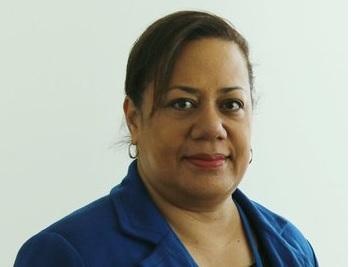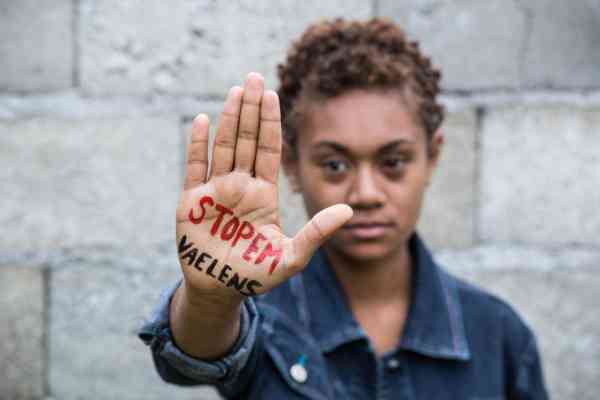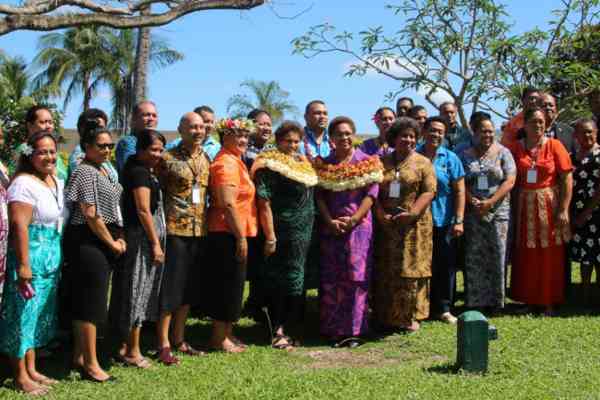Fourteen Pacific Island Countries have enacted specific legislation to address domestic violence. While these laws have been developed to respond to domestic violence, implementation continues to be a challenge. It is affected by various factors that include practical social, cultural, religious, political, environmental and economic challenges.
On 30 January 2020, the World Health Organization (WHO) declared the global COVID-19 pandemic. As the world geared up its response to the pandemic, the Solomon Islands, Fiji, Tonga and Vanuatu were also hit hard by Tropical Cyclone Harold in April 2020 and more recently, Tropical Cyclones Yasa and Ana which hit Fiji in December 2020 and January 2021. The global pandemic, coupled with tropical cyclones, further impacted the already high numbers of women facing domestic violence in the region. In turn, adding more pressure on the existing challenges for implementation of DV legislation, including coordination and service provision.
The 2nd Regional Working Group on Family Protection and Domestic Violence (RWG) meeting will be held on 23-26 August, 2021. The meeting will focus on Pacific Island countries sharing experiences, reflecting on good practices, challenges, and learnings to date on the implementation of Domestic Violence (DV) legislation, particularly in the key priority areas (advisory committees, counselling and data collection) within the context of the COVID-19 pandemic environment and natural disasters.
This feature focuses on the Kingdom of Tonga, reflecting on their journey and their experiences in the implementation of the DV legislation. We spoke to Polotu Fakafanua-Paunga, Deputy CEO, Women Affairs Division, Ministry of Internal Affairs.
1. Where are you at in terms of the implementation of DV legislation in the Kingdom of Tonga? Please include any specific activities and timelines that was carried out to help in the implementation of DV legislation.
There has been significant progress in Tonga’s implementation of DV Legislation. In 2013, Tonga passed the Family Protection Act in 2013 to ensure the safety and protection of all persons including children who experience or witness domestic violence. The act was implemented the following year also leading to the establishment of the Family Protection Advisory Council (FPAC).
In 2016, we established the FPAC Counselling sub-committee. In 2018 the Family Protection Act Trust Fund for Gender Based Violence service providers was implemented. The Tonga Family Protection Legal Aid Center was established following that and work began on consolidating Domestic Violence administrative data from frontline agencies. The year 2019 saw momentous developments with the development of the Tonga Family Protection Counselling Framework and the establishment of the Tonga Police Domestic Violence Unit.
In addition, these four sub-committees was established: Family Protection Advisory Council (FPAC) Referral sub-committee, FPAC Data sub-committee and FPAC Faith Based Organization & GBV sub-committee. The Tonga National Service Delivery Protocol began its development and 2019 also saw the completion of the 5-year review of the Tonga Family Protection Act, 2013 and the Inclusion of Domestic Violence module at Tonga MICS survey2013.
Last year, Tonga’s first Family Protection Act (FPA) Panel of Counsellors was registered. This year, we have thus far launched Tonga’s National Service Delivery Protocol, progressed the national validation of the Tonga SDP and consequently rolled out the Training of Trainers of Service Delivery Protocol.
2. Has there been any significant progress with the implementation process of the DV legislation in Tonga?
Yes, there has certainly been substantial progress in the last few years with the establishment of a Family Unit Protection Legal Aid Center and the Tonga Police Domestic Violence Unit. Progress has been made with the empowerment of Police officers to issue Police Safety Order especially in outer islands where there are few resident magistrates. We have seen that the Coordination and collaborations between GBV stakeholders have improved tremendously. It is also encouraging to see stakeholders that have or are in the process of developing their own Referral Protocol aligning with the National Protocol (Tonga Leitis Association (LGBTQI) & Health System).
3. What are some challenges faced with the implementation process of the DV legislation in Tonga?
Some of the challenges of the implementation of the Domestic Violence legislation include the following: i) there is no standard legal age or child protection act in Tonga. ii) Health services require commitment especially on performing their roles under the FPA. iii) Women unable to own land (perpetrators are the landowners so it is a challenge to remove them legally from the homes during domestic violence incidents). iv) Tonga only have 5 key services available (legal, police, health, social and temporary shelter).
Legal and social services are not recognized as essential services and thus hinder access of survivors to assistance and response from service providers during emergencies such as the COVID 19 pandemic or natural disasters). v)There is also the lack of perpetrators’ rehabilitation programs.
4. What are some gaps in the implementation process of DV legislation in Tonga that you feel needs to be addressed at the RWG meeting?
There is lack of allocated resources both financial and human resources. There is need for improvement in the legal & health systems to go hand in hand with the FPA. There is need for trainings & awareness on GBV and related issues especially with our government service providers (Police, Health, Education & Local Government). We also see that the need to decentralise services to other parts of the islands. Majority of service providers are located in Tongatapu and majority of resources are used in the main island with less to no resources available to develop outer islands’ services.
5. Provide any other additional information that you wish to add or be relevant to Tonga on DV legislation implementation.
We have more activities scheduled for late 2021-2022 period, these include: development of a standard referral form, MOUs, establish case management committees in outer islands, increase service providers in outer islands, development of resource booklet and directory for GBV service providers etc.
Background
In 2018, the Regional Rights Resource Team (RRRT) of the Pacific Community (SPC) - now formally called the Human Rights and Social Development Division - convened a “Regional Consultation on the Implementation of Domestic Violence Legislation: from Law to Practice”. The regional consultation brought together senior government officials from the Government Ministries / Departments responsible for the implementation of their country’s domestic violence legislation and provided a platform for reflections on progress against implementation of the domestic violence legislation in the region.
A key outcome from the consultation was the establishment of the Regional Working Group on Family Protection and Domestic Violence (RWG). The first meeting of the RWG was held in May 2019 with representation from Cook Islands, Kiribati, Tuvalu, Federated States of Micronesia (Kosrae & Pohnpei), Solomon Islands, Marshall Islands, Vanuatu and Tonga. The RWG agreed to two annual meetings (one face-to-face and another virtually). These meetings would provide a space for the RWG to update on the implementation of their legislation, highlight key areas of need from regional organisations that support countries on responding to domestic violence, and recommend important work needing technical and/or financial support.
The Human Rights and Social Development Division (formerly RRRT) is the Secretariat of the Regional Working Group and works closely with the Chair and Deputy Chair to develop the program for the meetings, coordinate financial support and coordination of the meetings. The next annual meeting is scheduled for August 2021.


